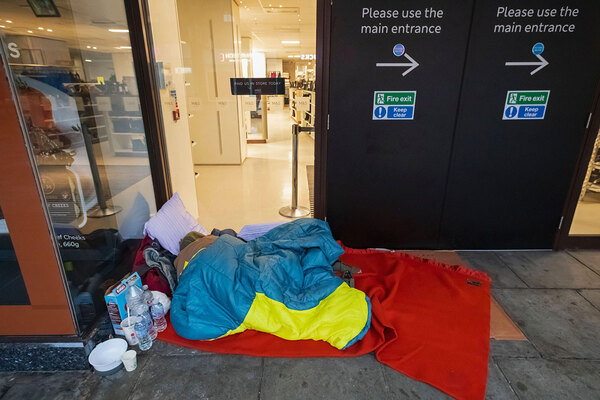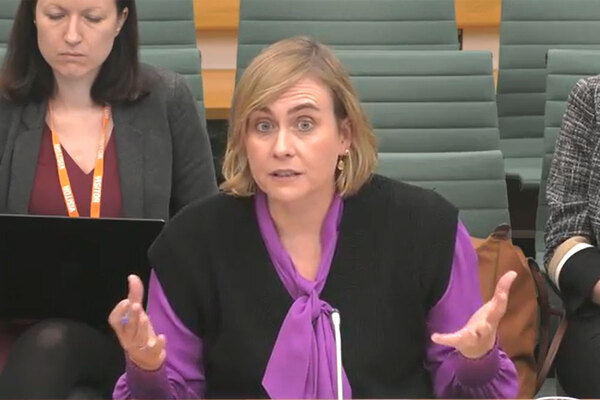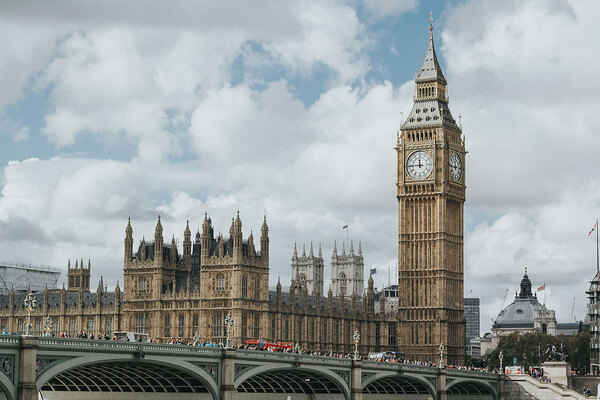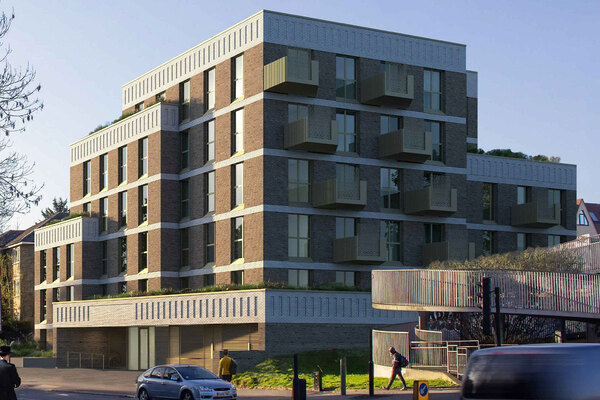You are viewing 1 of your 1 free articles
Damning PAC report finds no clear homelessness strategy, no logic to LHA rates, and calls on MHCLG to set affordable housing target
A damning inquiry report from the Public Accounts Committee (PAC) has chastised the government’s homelessness strategy for being unclear, described Local Housing Allowance (LHA) rates as having no logic, and called for an affordable homes target.

MPs on the committee did not hold back as several government departments and Homes England were urged to clarify their approach to tackling homelessness.
PAC has called for a clear strategy and stronger support for local authorities to address what it described as “a crisis situation” after it launched the inquiry last year.
Of the estimated £2.1bn spent by local authorities in 2023-24 on temporary accommodation, the report found that a large proportion was used to meet the urgent need for immediate support, rather than preventative measures that are so desperately needed.
Despite there being an overarching homelessness strategy for each of the devolved nations, England does not have one. Therefore, the Ministry of Housing, Communities and Local Government (MHCLG) needs to set out a strategy that clearly outlines how preventative measures will be incentivised, the report said.
This intervention by PAC comes as two-thirds of councils reported being at risk of being unable to set a balanced housing budget by the next general election.
The report also argued for an exemption from requirements on local connections or residency for all veterans, care leavers under 25 years old, and victims of domestic abuse.
At the same time, competition between local authorities and the Home Office for temporary accommodation should be eliminated.
The government did bring in new regulations to remove a local connection requirement for veterans to access social housing at the end of last year.
The report has raised deep concerns around the rising number of families being housed outside their local area, and the “equally alarming” fact that 6,000 homeless families with children live in B&Bs due to the lack of alternative accommodation.
PAC described the level of B&B use as “unacceptable” and has called on MHCLG to set out how it intends to strengthen its use of homelessness advice and support team advisors to reduce its use. It also called for additional support for councils with high rates of temporary accommodation use to plan how to reduce their reliance on such housing.
MHCLG should improve its data on out-of-area placements “as a matter of urgency” and explore possible steps to incentivise councils to use local providers.
The report stressed the detrimental impact that living in this type of accommodation has on people’s lives; particularly children whose safety and well-being can be severely compromised as a result.
With 45% of households facing a shortfall between the LHA they receive and the rent they pay, PAC has warned that the government is not considering the impact on homelessness when setting LHA rates.
The decisions made by the government to determine LHA have been described as “subjective”.
The committee said: “We are not convinced that in setting LHA rates, the Department for Work and Pensions (DWP) has given due consideration to the impact on homelessness.
“Given that funding is essentially based on the 2011 LHA rate, it has not kept up with local authorities’ rising temporary accommodation costs.”
In 2022-23, local authorities in England experienced a subsidy loss of £204.5m, compared with £41.4m in 2012-13. The DWP has been asked to write to PAC and set out in detail the levels of LHA it has set.
The DWP has been contacted for comment.
The government highlighted that LHA rates were restored to the 30th percentile of local market rents from April 2024 for one year. For people who need further support, it pointed to the Household Support Fund and Discretionary Housing Payments.
However, the gap between benefit payments and rental costs is being exacerbated by the lack of affordable housing. On this, the report said “the government seems frustratingly unable to provide detailed assurances”.
The committee described it as “troubling that there are so many barriers to increasing housing supply, such as problems with the viability of sites”.
PAC said MHCLG is unable to provide more details about its delivery plan, especially the number of social homes that need to be built during the period of the strategy.
MHCLG should provide PAC with an update on how its proposed new housing strategy will achieve practical improvements in the delivery of new homes, particularly affordable homes, the report said.
In addition, both MHCLG and Homes England should explain why the government’s housing and regeneration agency fell short of its targets for new homes in 2023-24, including affordable homes, and what steps they are taking to ensure targets for 2024-25 and beyond will be achieved.
Homes England has been asked for a response to the report. In the meantime, the government said it will publish a long-term housing strategy that will set out how it plans to achieve its 1.5 million homes target.
Sir Geoffrey Clifton-Brown, chair of PAC, said: “My committee is deeply concerned by the number of people currently being housed in sub-standard, overpriced and at times wholly inappropriate accommodation – sometimes a long way from their previous home.
“A lack of affordable housing, a focus on short-term solutions and no clear strategy to tackle this issue have left us with thousands of families in deeply troubling circumstances. Worryingly, there seems to be no desire to move away from an unsatisfactory short-term system, leaving local authorities attempting to save a sinking ship with a little more than a leaky bucket.
“Local authorities find themselves at a breaking point as they haemorrhage funds to cover the rising costs of housing families in temporary accommodation.”
Elsewhere, the report found there is no strategy or target for homelessness in England, despite PAC having recommended in 2017 that a cross-government strategy be published. In the continued absence of such a strategy, the work of government departments can lack co-ordination, it said.
In December, an inter-ministerial group chaired by deputy prime minister and housing secretary Angela Rayner revealed how it is working with mayors and councils to develop a homelessness reduction strategy. This included £1bn in new funding.
Ms Rayner said she was “pulling every lever of the state to ensure that we deliver not just sticking plasters but a long-term plan”.
However, PAC said: “While it expects to produce a strategy in 2025, we are unclear how this arrangement will achieve results that the existing cross-government boards with a remit relevant to homelessness have failed to achieve.”
Despite legislation designed to tackle well-established problems and gaps in regulation, MHCLG has made no progress in improving the oversight of the supported housing sector.
PAC had previously expressed concerns that gaps in regulation mean landlords can provide costly, sub-standard housing with little support, supervision or care.
The Supported Housing (Regulatory Oversight) Act became law in August 2023. It brought forward national standards for support and looked to give local authorities power to tackle poor-quality supported housing in their area. However by the end of 2024, the act had not been put into practice and the government is now seeking views on its implementation.
PAC is “not persuaded by MHCLG’s argument that it still cannot commit to any form of timetable for implementing the provisions of the act” and called for it to be implemented as quickly as possible.
Sir Geoffrey added: “We are calling for an overarching strategy that addresses the need for better connectivity across government departments to tackle the root causes of this crisis.
“Without one, we fear this will remain an issue into which money is simply poured, without effectively tackling the blight of homelessness. Government must learn from the lessons of the past to inform what they will do in the future.”
In response, a government spokesperson said: “These figures are completely unacceptable and demonstrate the devastating homelessness crisis we have inherited.
“This is why we are taking urgent and decisive action to end homelessness for good, including committing £1bn in additional support for homelessness services and address the use of emergency accommodation.
“We’re tackling the root causes of homelessness: committing in our Plan for Change to build 1.5 million new homes, which includes building the social and affordable homes this country needs, and are changing the law to abolish Section 21 no-fault evictions – immediately tackling one of the leading causes of homelessness.”
Sign up for our daily newsletter
Already have an account? Click here to manage your newsletters










